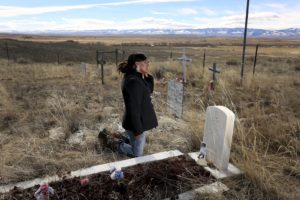LOUISVILLE, Ky. (WDRB) — While his church may have a majority-white congregation in the middle of a majority-white Louisville neighborhood, Jason Crosby, the white minister of preaching at Crescent Hill Baptist Church, addressed Metro Council members Thursday evening to advocate for his Black neighbors.
“All we have to do in Louisville, Kentucky is to look out our windows to see the disparity between — the economic reality between — white and Black residents of our city,” he told members of council’s Equity and Inclusion committee.
Crosby and others urged council to pass a recently-introduced resolution that would show Louisville’s support of reparations.
If Metro Council approves the resolution in the coming weeks, it would ask the U.S. Congress and other federal leaders to support House Resolution 40, which would study reparation proposals and then offer direct payments to the Black Americans descended from slaves.
“We must repent, and then, we must repair,” Crosby told council.
However, as Metro Council starts debating the resolution, questions remain, and some of them were voiced by another speaker at the meeting, Dr. Wilfred Reilly, a professor at Kentucky State University.
“Who is eligible to receive reparations benefits?” he asked council. “Who gives them? If we’re talking about a tax-payer funded program, where does the source of the funding for the reparations initiative come from?”
“The question of how to compensate for history is a truly difficult, truly complicated one,” he concluded.
Yvette Carnell, the co-founder of the American Descendants of Slavery (ADOS) Advocacy Foundation, assured council those questions can be answered.
“This is your opportunity to be on the right side,” she told council. “This is your opportunity to absolutely do that.”
Crosby, meanwhile, reminded members that it isn’t council’s or even Louisville’s responsibility to have all answers to all questions about reparations. The resolution, if passed, would simply be a statement of opinion on behalf of the city.
“All this resolution is merely doing is supporting a commission to be formed by the federal government to study the possibility — the possibility — of making reparation payments available,” he said.
Council members, however, want to discuss the topic further before holding a vote. The resolution was tabled as the meeting concluded Thursday.




